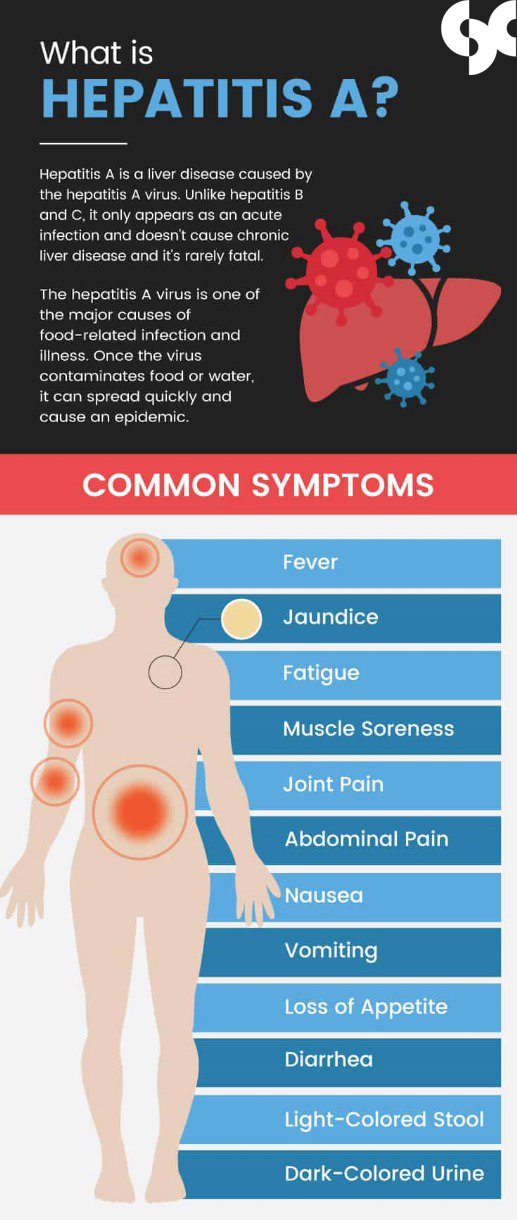
Hepatitis A is a vaccine-preventable liver infection caused by the hepatitis A virus (HAV). HAV is found in the stool and blood of people who are infected. Hepatitis A is very contagious. It is spread when someone unknowingly ingests the virus — even in microscopic amounts — through close personal contact with an infected person or through eating contaminated food or drink. Symptoms of hepatitis A can last up to 2 months and include fatigue, nausea, stomach pain, and jaundice. Most people with hepatitis A do not have long-lasting illness. The best way to prevent hepatitis A is to get vaccinated.
Some types of hepatitis are preventable through vaccination. A WHO study found that an estimated 4.5 million premature deaths could be prevented in low- and middle-income countries by 2030 through vaccination, diagnostic tests, medicines and education campaigns. WHO’s global hepatitis strategy, endorsed by all WHO Member States, aims to reduce new hepatitis infections by 90% and deaths by 65% between 2016 and 2030.